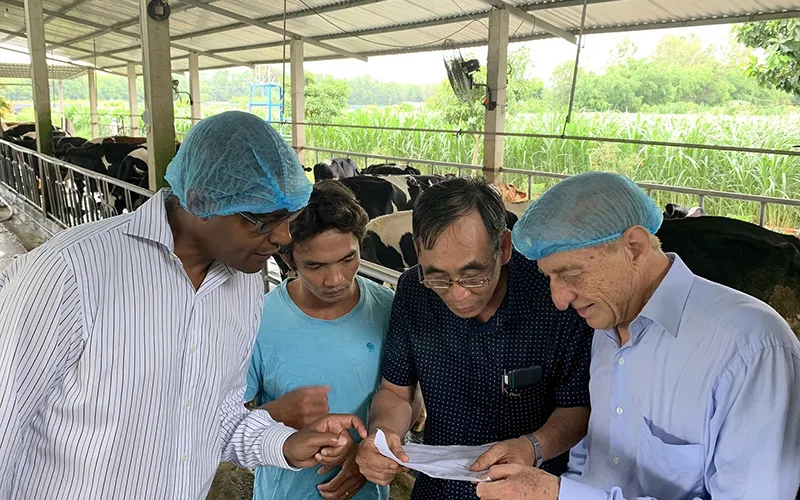US supports Vietnam in sustainable livestock practice
The program built the capacity of livestock experts and extension officers to enhance sustainable intensification of the sector.
The United States has been supporting Vietnam in an initiative to develop animal husbandry in a sustainable way.
| Extension agents receiving hands-on training in July 2019 at a farm near Ho Chi Minh City. Photo: US embassy in Hanoi |
The United States Department of Agriculture (USDA) and the Vietnamese Ministry of Agriculture and Rural Development (MARD) have collaborated since 2012 on the “Enhancing Capacity for Low Emission Development Strategies (EC-LEDS) in the Agriculture Sector” project, through funding from the US Department of State.
The program built the capacity of livestock experts and extension officers to enhance sustainable intensification of the sector in line with national agriculture development and environmental policy objectives.
A major challenge the project aimed to tackle was improving efficiency of livestock production through feed improvements and assess associated reductions in greenhouse gas emissions per unit of milk or meat.
The project partnered livestock experts from the University of California (UC) Davis with MARD’s Department of Livestock Production, National Institute for Animal Science, National Agriculture Extension Center, and the Vietnam National University of Agriculture.
Software developed by UC Davis for beef and cattle ration development was translated into Vietnamese and is now available for free through MARD. The software also includes a new greenhouse gas emission calculator, which allows users to track how innovation in livestock feed management can support implementation of greenhouse gas reduction goals.
Improving feed management first requires data on feeds available and a deep understanding of animal husbandry. The project developed the first national feed database for Vietnam, which contains over 1,100 feed forages making it one of the largest consolidated feed databases globally. Feed and forage available through international markets and specific feeds available seasonably and regionally across Vietnam are included.
Roughly 400 extension officers and livestock experts, as well as almost 4,000 students studying animal husbandry, have been trained on how to use the software to develop improved feed rations.
Throughout 2020, the partners will continue to share the project resources with technical experts as well as supporting uptake of the findings into policy planning and implementation.












